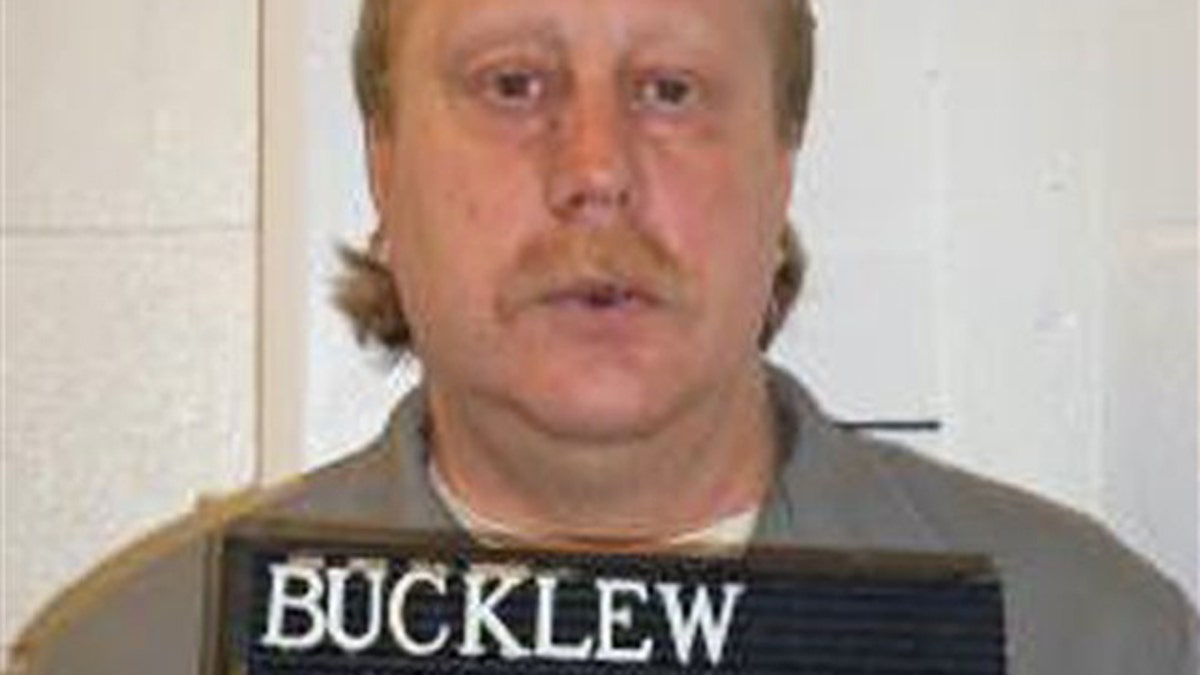
Feb. 9, 2014: Russell Bucklew is scheduled to die for killing a romantic rival as part of a crime spree in southeast Missouri in 1996. (ap)
The U.S. Supreme Court on Wednesday halted the execution of a Missouri inmate with a rare medical condition who challenged the state's refusal to disclose the source of its lethal injection drug.
The justices said a lower federal court needs to take another look at the case of Russell Bucklew. He had been scheduled to be put to death at 12:01 a.m. Wednesday for the 1996 killing of a man during a violent crime spree, but Supreme Court Justice Samuel Alito had blocked the execution late Tuesday while the full court considered the matter.
By law, Missouri has a 24-hour window to carry out a scheduled execution, and it wasn't immediately clear if the ruling meant the execution was canceled. The Associated Press could not immediately reach attorneys for Bucklew and the state.
Bucklew would have been the first inmate put to death since last month's botched execution in Oklahoma.
Bucklew, 46, suffers from a rare congenital condition -- cavernous hemangioma -- that causes weakened and malformed blood vessels, as well as tumors in his nose and throat. His attorneys say this and the secrecy surrounding the state's lethal injection drug combine to make for an unacceptably high chance of something going wrong during his execution. He told The Associated Press last week that he is scared of what might happen during the process.
During Oklahoma's April 29 execution, inmate Clayton Lockett's vein collapsed, and he writhed on the gurney before eventually dying of a heart attack more than 40 minutes after the start of a procedure that typically takes roughly one-fourth of that time to complete.
European companies opposed to capital punishment cut off supplies of certain execution drugs, leading Missouri and other states to turn to U.S. sources. The states refuse to identify the sources of their execution drugs, saying secrecy is necessary to protect the sources from possible retaliation by death penalty opponents.
Death penalty opponents say the secrecy makes it impossible to ensure that the drugs couldn't cause an inmate to endure an agonizing death that rises to the level of unconstitutionally cruel and unusual punishment.
Missouri switched from a three-drug protocol to the single drug pentobarbital late last year. None of the six inmates executed since Missouri made the change has shown outward signs of pain or suffering.
The AP and four other news organizations filed a lawsuit last week against the Missouri Department of Corrections, claiming the state's refusal to provide information on the execution drug violates the public's constitutional right to have access to information about the punishment.
According to prosecutors, Bucklew was angry at his girlfriend, Stephanie Pruitt, for leaving him. Pruitt moved with her two daughters into the Cape Girardeau home of Michael Sanders, who had two sons. Bucklew tracked Pruitt down at Sanders' home March 21, 1996, and killed Sanders in front of Pruitt and the four children. He handcuffed and beat Pruitt, drove her to a secluded area and raped her.
Later, after a state trooper spotted the car, Bucklew shot at the trooper but missed, authorities say. Bucklew was grazed in the head and hospitalized. He later escaped from jail, hid in the home of Pruitt's mother and beat her with a hammer. She escaped, and Bucklew was arrested a short time later.




